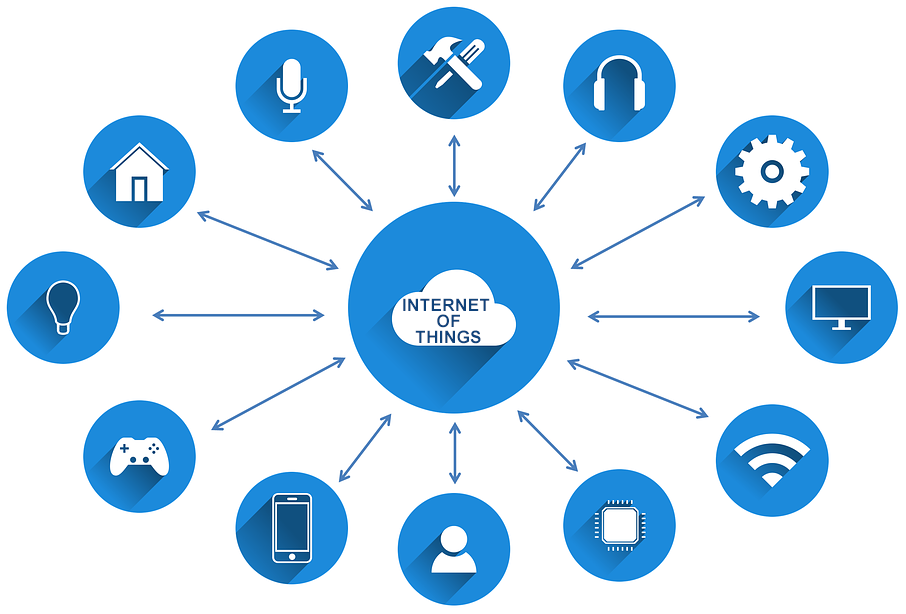There’s a huge new marketplace emerging and it’s definitely worthy of watching. The Internet of Things (IoT) is coming on strong…so strong, in fact, that the IoT marketplace is expected to exceed $130 billion by 2024.
Here’s what the experts say to expect – by 2020 – IoT service offerings related to discrete manufacturing, transportation and logistics and utility industries. In just these three areas, projections are that each will represent $40 billion in spending on platforms, systems and services. That’s a big deal!
Last month, both public- and private-sector attendees gathered at an IoT World 2018 Conference. Participants spent time discussing the latest technological advances in the IoT world. Discussions included many aspects of IoT technology but one issue came across loud and clear – the need to develop IoT offerings related to citizen needs.
The Smart Cities movement has been a huge adapter of IoT solutions but the pace of implementation has slowed because of a lack of funding. Observers knew this day was coming. It was obvious that grants would not be adequate and alternative funding sources would have to be found.
Some of the greatest IoT needs include:
- IoT applications that allow power and energy utilities to succeed with digital transformation initiatives;
- Transportation services that alleviate congestion and reduce emissions into the air;
- Water and waste management solutions;
- Citizen information-sharing; and
- Analytics capabilities that allow cities to use data generated from IoT.
The funding obstacle is critical. However, many projects are finding ways to fund initiatives. Some IoT technology is being launched through user fees and other projects are based on funds from advertising. And, there is still grant funding available and some cities are able to capture that type of revenue.
 In spite of funding shortages, there are other ways of launching projects and one attractive type of engagement is a public-private partnership. Those engagements require private funding from companies that will finance, operate and maintain the IoT services. Various types of repayment models for the capital investment that is required are being utilized.
In spite of funding shortages, there are other ways of launching projects and one attractive type of engagement is a public-private partnership. Those engagements require private funding from companies that will finance, operate and maintain the IoT services. Various types of repayment models for the capital investment that is required are being utilized.
Las Vegas is currently testing three pilot projects. The city obligated $500 million to find ways to connect the entire city by 2025. One project uses sensors to track traffic patterns and maneuver traffic through street lights that are connected by sensors. The project also records the reduction of CO2 emissions that are realized by eliminating congestion. A second pilot that also uses sensors focuses on pedestrian safety. The sensors detect movement in intersections when pedestrians step into crosswalks. If there is danger of a pedestrian being struck by traffic, the sensors change traffic lights to red to stop oncoming traffic. The third pilot is designed to detect when trash receptacles are full and when streetlights are out. This project’s objective is to improve maintenance operations in the city.
The city of Portland, Oregon, is using similar IoT technology that attaches a network of sensors to city streetlights and traffic signals. This pilot project provides data about air quality based on improvements made by regulating stalled traffic. If successful, the city will expand the project from major intersections to the city as a whole.
The city of Henderson, Nevada, has launched initiatives designed to maintain a competitive edge while enhancing the quality of living for residents. The projects fall into five main categories: citizen services, public safety, education, transportation and city government. These projects incorporate many IoT attributes including pedestrian-to-vehicle technology, telematics (long-distance transmission of information), drone assessment tools and smart water metering. The city is seeking a public and private partners to help with its transformation to IoT technology.
Kansas City, Missouri, embraced a public-private partnership for its IoT efforts. Municipal officials supplied $3.7 million for the project and private-sector partners financed another $12.3 million. The project installed 25 kiosks for citizens to conveniently connect to the Internet to receive city information. The kiosks where information can be obtained also function as an emergency alert system. The city’s repayment model for the initial capital invested will come from advertising revenue that will be incorporated in the programs. The private-sector partner will share in the revenues and has announced that it will likely recoup all its capital costs in less than five years.
IoT represents the future for U.S. cities. The marketplace that is being created is extremely attractive and it’s definitely worth watching.
Strategic Partnerships, Inc. is one of the leading government contracting consulting firms in the county. Contact them today to learn more about growing your public sector business.






